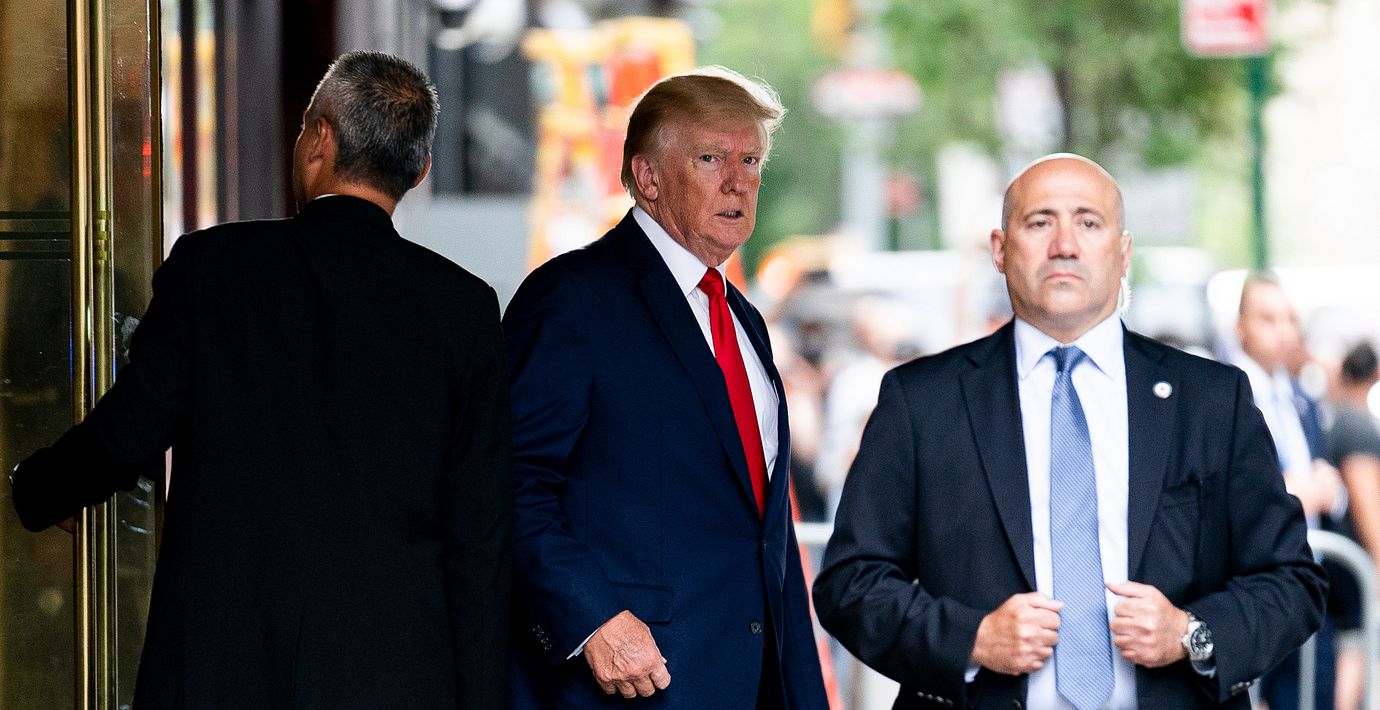
Trump teg under förhöret: ”Är en ogrundad häxjakt”
Donald Trump vägrade att svara på frågor när han på onsdagen vittnade under ed inför New Yorks delstatsåklagare. I stället åberopade han det femte tillägget till konstitutionen.
”En gång i tiden frågade jag mig själv: ’Om du är oskyldig, varför åberopar du då det femte tillägget?’” skriver Trump i ett uttalande och fortsätter:
”Nu vet jag svaret på frågan. Du har inget val när din familj, ditt företag och alla människor i din omloppsbana har blivit måltavlor för en ogrundad, politiskt motiverad häxjakt.”
Fallet handlar om ex-presidentens företag, Trump Organization, som anklagas för att ha redovisat felaktiga värden på tillgångar och därmed vilselett långivare och skattemyndigheter.
Flera politiska journalister i USA twittrar
bakgrund
Fifth Amendment to the United States Constitution
Wikipedia (en)
The Fifth Amendment (Amendment V) to the United States Constitution addresses criminal procedure and other aspects of the Constitution. It was ratified, along with nine other articles, in 1791 as part of the Bill of Rights. The Fifth Amendment applies to every level of the government, including the federal, state, and local levels, in regard to a US citizen or resident of the US. The Supreme Court furthered the protections of this amendment through the Due Process Clause of the Fourteenth Amendment.
One provision of the Fifth Amendment requires that felonies be tried only upon indictment by a grand jury. Another provision, the Double Jeopardy Clause, provides the right of defendants to be tried only once in federal court for the same offense. The self-incrimination clause provides various protections against self-incrimination, including the right of an individual not to serve as a witness in a criminal case in which they are the defendant. "Pleading the Fifth" is a colloquial term often used to invoke the self-incrimination clause when witnesses decline to answer questions where the answers might incriminate them. In the 1966 case of Miranda v. Arizona, the Supreme Court held that the self-incrimination clause requires the police to issue a Miranda warning to criminal suspects interrogated while under police custody. The Fifth Amendment also contains the Takings Clause, which allows the federal government to take private property for public use if the government provides "just compensation".
Like the Fourteenth Amendment, the Fifth Amendment includes a due process clause stating that no person shall "be deprived of life, liberty, or property, without due process of law". The Fifth Amendment's due process clause applies to the federal government, while the Fourteenth Amendment's due process clause applies to state governments. The Supreme Court has interpreted the Fifth Amendment's Due Process Clause as providing two main protections: procedural due process, which requires government officials to follow fair procedures before depriving a person of life, liberty, or property, and substantive due process, which protects certain fundamental rights from government interference. The Supreme Court has also held that the Due Process Clause contains a prohibition against vague laws and an implied equal protection requirement similar to the Fourteenth Amendment's Equal Protection Clause.
Omni är politiskt obundna och oberoende. Vi strävar efter att ge fler perspektiv på nyheterna. Har du frågor eller synpunkter kring vår rapportering? Kontakta redaktionen



